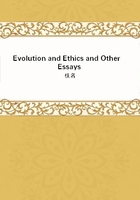
第58章
If there were no such things as industrial pursuits, a system of education which does nothing for the faculties of observation, which trains neither the eye nor the hand, and is compatible with utter ignorance of the commonest natural truths, might still be reasonably regarded as strangely imperfect. And when we consider that the instruction and training which are lacking are exactly; those which are of most importance for the great mass of our population, the fault becomes almost a crime, the more that there is no practical difficulty in making good these defects. There really is no reason why drawing should not be universally taught, and it is an admirable training for both eye and hand. Artists are born, not made; but everybody may be taught to draw elevations, plans, and sections; and pots and pans are as good, indeed better, models for this purpose than the Apollo Belvedere. The plant is not expensive; and there is this excellent quality about drawing of the kind indicated, that it can be tested almost as easily and severely as arithmetic. Such drawings are either right or wrong, and if they are wrong the pupil can be made to see that they are wrong. From the industrial point of view, drawing has the further merit that there is hardly any trade in which the power of drawing is not of daily and hourly utility. In the next place, no good reason, except the want of capable teachers, can be assigned why elementary notions of science should not be an element in general instruction. In this case, again, no expensive or elaborate apparatus is necessary. The commonest thing--a candle, a boy's squirt, a piece of chalk--in the hands of a teacher who knows his business, may be made the starting-point whence children may be led into the regions of science as far as their capacity permits, with efficient exercise of their observational and reasoning faculties on the road. If object lessons often prove trivial failures, it is not the fault of object lessons, but that of the teacher, who has not found out how much the power of teaching a little depends on knowing a great deal, and that thoroughly; and that he has not made that discovery is not the fault of the teachers, but of the detestable system of training them which is widely prevalent.
Training in the use of simple tools is no doubt desirable, on all grounds. From the point of view of "culture," the man whose "fingers are all thumbs" is but a stunted creature. But the practical difficulties in the way of introducing handiwork of this kind into elementary schools appear to me to be considerable.
As I have said, I do not regard the proposal to add these to the present subjects of universal instruction as made merely in the interests of industry. Elementary science and drawing are just as needful at Eton (where I am happy to say both are now parts of the regular course) as in the lowest primary school. But their importance in the education of the artisan is enhanced, not merely by the fact that the knowledge and skill thus gained--little as they may amount to--will still be of practical utility to him; but, further, because they constitute an introduction to that special training which is commonly called "technical education."
I conceive that our wants in this last direction may be grouped under three heads:Instruction in the principles of those branches of science and of art which are peculiarly applicable to industrial pursuits, which may be called preliminary scientific education.
Instruction in the special branches of such applied science and art, as technical education proper.Instruction of teachers in both these branches.Capacity-catching machinery.
A great deal has already been done in each of these directions, but much remains to be done. If elementary education is amended in the way that has been suggested, I think that the school boards will have quite as much on their hands as they are capable of doing well.
The influences under which the members of these bodies are elected do not tend to secure fitness for dealing with scientific or technical education; and it is the less necessary to burden them with an uncongenial task as there are other organizations, not only much better fitted to do the work, but already actually doing it.
In the matter of preliminary scientific education, the chief of these is the Science and Art Department, which has done more during the last quarter of a century for the teaching of elementary science among the masses of the people than any organization which exists either in this or in any other country. It has become veritably a people's university, so far as physical science is concerned. At the foundation of our old universities they were freely open to the poorest, but the poorest must come to them. In the last quarter of a century, the Science and Art Department, by means of its classes spread all over the country and open to all, has conveyed instruction to the poorest.
The University Extension movement shows that our older learned corporations have discovered the propriety of following suit.